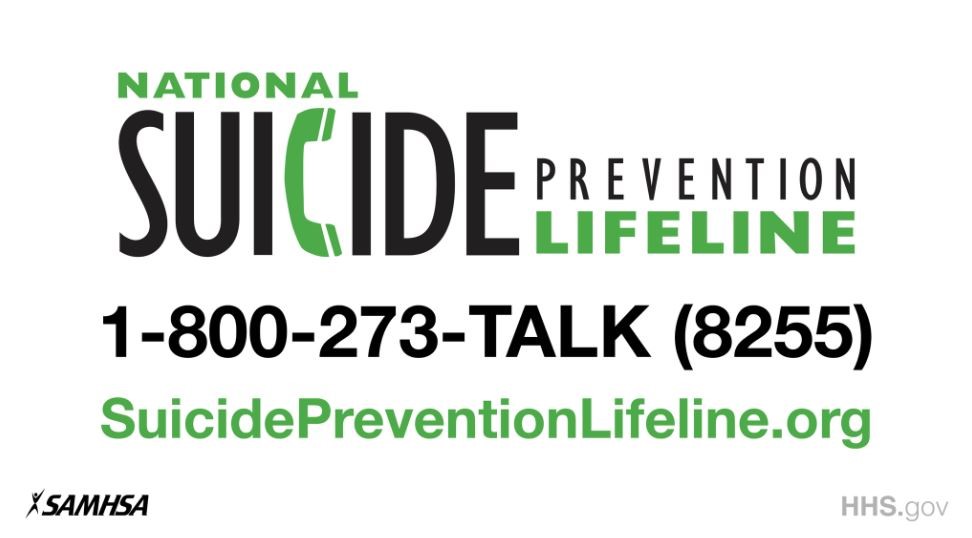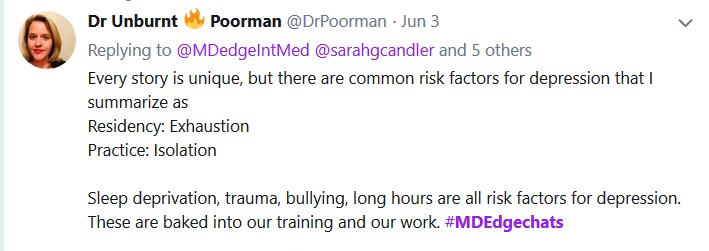Many physicians work long hours and may ignore the fatigue and emotional toll that comes with those pressures. The stress cannot only lead to crippling depression but also to declined mental health and even thoughts of suicide.
Each year, an estimated 400 physicians take their own lives, mostly because of depression and stress, according to the West Journal of Emergency Medicine.
MDedge Internal Medicine recently hosted a Twitter conversation (#MDedgeChats) on how the health care community can address this emerging crisis and help their colleagues understand that they are not alone. Two primary care physicians — Sarah Candler, MD, and Elisabeth Poorman, MD — led the conversation, with guests Michael Rose, MD, Arghavan Salles, MD, Richard M. Wardrop III, MD, Jessica Gold, MD, and Janae Sharp.
Throughout the conversation, physicians encouraged other medical professionals to seek help if it is needed. “If you don’t feel comfortable sharing with your team, feel free to share with folks you met here,” Dr. Candler wrote. “Please seek professional solace with a therapist! That’s what this is about – the support to do what you need for yourself. Good doctors take care of themselves, too.”
These issues are not just important in the medical community “because everyone will get sick, and we are failing each other. We are failing our patients and our communities when we won’t fight for change. The center will not hold here,” said Dr. Elizabeth Poorman.
The following is an edited version of the discussion.
Question 2: "How can we end stigma against seeking mental health treatment among physicians?" is on the next page.







